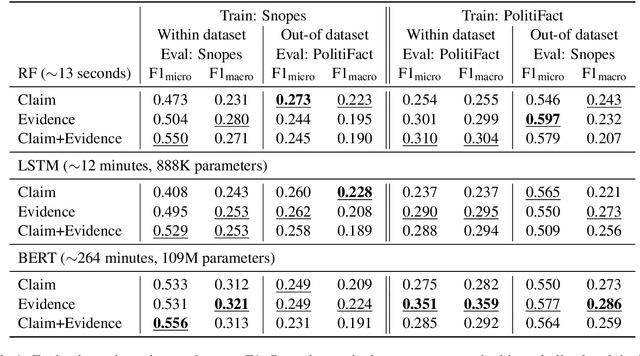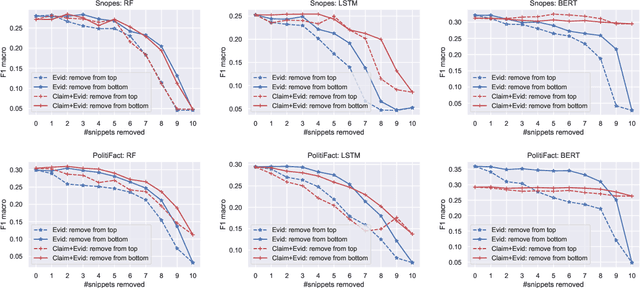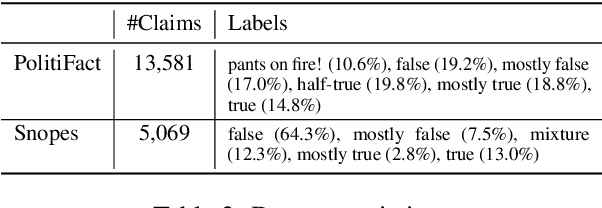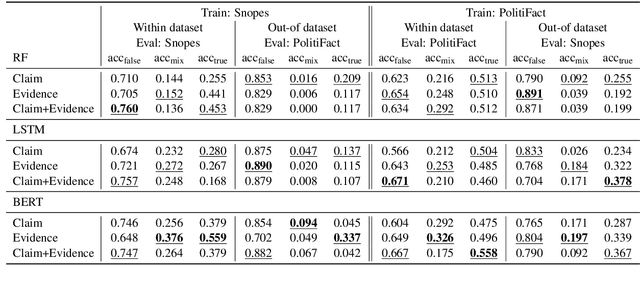Automatic Fake News Detection: Are Models Learning to Reason?
Paper and Code
May 17, 2021



Most fact checking models for automatic fake news detection are based on reasoning: given a claim with associated evidence, the models aim to estimate the claim veracity based on the supporting or refuting content within the evidence. When these models perform well, it is generally assumed to be due to the models having learned to reason over the evidence with regards to the claim. In this paper, we investigate this assumption of reasoning, by exploring the relationship and importance of both claim and evidence. Surprisingly, we find on political fact checking datasets that most often the highest effectiveness is obtained by utilizing only the evidence, as the impact of including the claim is either negligible or harmful to the effectiveness. This highlights an important problem in what constitutes evidence in existing approaches for automatic fake news detection.
 Add to Chrome
Add to Chrome Add to Firefox
Add to Firefox Add to Edge
Add to Edge